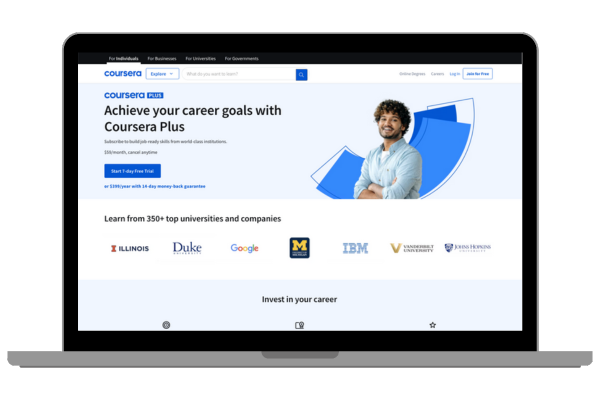Table of Contents
- Bridging the Gap Between STEM Education and Career Success
- STEM Education: A Gateway to Innovation and Economic Growth
- Why Career Support Matters in STEM Education
- How Universities Can Strengthen Career Support in STEM Education
- 1. Providing Internship and Co-Op Opportunities
- 2. Offering Industry Certifications and Skill Development Resources
- 3. Strengthening Mentorship and Networking Opportunities
- 4. Supporting International Students
- Career Preparation as a Core Principle
- Learning Beyond the Curriculum
- Internships with Intention
- A Global Perspective with Local Access
- Support for International Career Pathways
- The Path Forward for STEM Students
- Frequently Asked Questions (FAQ)
Bridging the Gap Between STEM Education and Career Success
STEM education provides students with the technical expertise needed to thrive in fields like computer science, data analytics, and engineering. However, technical expertise alone is not enough to guarantee professional success. Universities that integrate career support in STEM education through internships, mentorship programs, industry collaborations, and skill-building resources into their STEM programs help students transition seamlessly into the workforce. Career readiness—the ability to transition smoothly from academic learning to the workforce—is just as essential.
In today’s fast-evolving job market, employers seek candidates who not only possess technical skills but also demonstrate career readiness—problem-solving abilities, industry exposure, and adaptability. This article explores how universities can enhance career support in STEM education to ensure students graduate with both the knowledge and the career opportunities they need to succeed.
STEM Education: A Gateway to Innovation and Economic Growth
STEM fields are at the forefront of global innovation, driving advancements in technology, healthcare, finance, and environmental sustainability. From artificial intelligence automating industries to big data analytics shaping decision-making, STEM professionals play a crucial role in solving real-world challenges.
Economically, STEM-related industries contribute significantly to job creation and economic expansion. According to global labor market trends, careers in software development, cybersecurity, and data science are among the fastest-growing, with demand projected to increase steadily over the next decade. This makes STEM education a key driver of career stability and economic mobility.
Universities that recognize the economic impact of STEM provide students with career-oriented education, ensuring that graduates are prepared for high-demand roles in innovative industries.
Why Career Support Matters in STEM Education
The demand for STEM professionals continues to rise, with industries such as cybersecurity, artificial intelligence, and cloud computing expanding rapidly. However, many graduates struggle to secure jobs because they lack practical experience and industry connections.
A well guided career support helps bridge this gap by providing students with:
- Internships and co-op programs that allow them to gain hands-on experience.
- Networking opportunities with industry professionals.
- Access to professional certifications and skill-building platforms.
- Guidance on navigating employment regulations, especially for international students.
By embedding career support into STEM programs, universities equip students with both technical skills and workplace readiness, giving them a competitive edge in the job market.
How Universities Can Strengthen Career Support in STEM Education
Universities that prioritize career support implement strategies that go beyond traditional classroom learning. Here are some of the most effective ways to help STEM students succeed professionally.
1. Providing Internship and Co-Op Opportunities
Internships play a vital role in helping students apply their knowledge in real-world scenarios. Universities with strong career support systems collaborate with technology companies, government agencies, and research institutions to offer internship placements.
For STEM students, these experiences provide:
- Exposure to real-world problem-solving in data science, software engineering, and cybersecurity.
- The opportunity to work on projects with industry professionals.
- Hands-on experience with cutting-edge tools and technologies.
Universities can facilitate this process by actively partnering with companies, guiding students through the application process, and matching them with opportunities that align with their career goals and academic backgrounds.
2. Offering Industry Certifications and Skill Development Resources
To remain competitive, STEM professionals must continuously upgrade their skills. Universities could support this by integrating industry-relevant certifications, hands-on training, and access to specialized learning resources, enabling students to:
- Earn certifications in their relevant fields in STEM
- Develop industry-relevant skills alongside their degree.
- Gain an additional competitive edge in the job market.
By incorporating certifications and self-paced learning opportunities into their programs, universities prepare students for evolving industry demands.
3. Strengthening Mentorship and Networking Opportunities
A strong professional network can open doors to career opportunities. Universities can foster networking by:
- Connecting students with industry mentors who provide career guidance.
- Organizing guest lectures, career panels, and industry workshops.
- Encouraging students to participate in STEM conferences and professional organizations.
Networking helps STEM students build valuable relationships, learn about emerging trends, and secure job opportunities post-graduation.
4. Supporting International Students
International students in STEM fields face additional challenges in securing work experience due to visa and work authorization regulations. Universities that provide comprehensive support for Optional Practical Training (OPT) and Curricular Practical Training (CPT) help international students gain hands-on experience in the U.S..
With the STEM OPT extension allowing up to 24 months of work experience, universities that actively guide students through this process significantly enhance career support.
How Bay Atlantic University Integrates Career Support into STEM Education
At Bay Atlantic University (BAU), career support is not an add-on—it is a built-in part of the student experience, especially within STEM education. Understanding the realities of the modern workforce, BAU creates an environment where students don’t just learn technical skills—they develop the confidence and readiness to navigate complex career paths in tech-driven industries.
Career Preparation as a Core Principle
Rather than treating career planning as a separate track, BAU embeds it into the academic journey. Faculty and advisors engage with students early on to explore their career goals, interests, and skill development needs. This proactive approach ensures that students receive not just theoretical instruction, but also strategic career guidance throughout their education.
Learning Beyond the Curriculum
To further strengthen career readiness, BAU provides free access to Coursera, enabling students to take industry-relevant courses from global institutions and earn certifications that complement their formal education. This self-directed, flexible learning opportunity empowers students to stay current and competitive throughout their studies.
Internships with Intention
Internships at BAU are not left to chance. Particularly for graduate students, BAU guarantees remote internship placements, ensuring that each student has access to real-world experience regardless of location or background. These internships are carefully aligned with students’ academic focus, allowing them to apply their knowledge while also building a portfolio that reflects their strengths.
✅ Request information on BAU's programs TODAY!
A Global Perspective with Local Access
Located in the heart of Washington, DC, BAU offers students unparalleled access to global institutions, government agencies, and technology firms. This proximity enables students to engage with experts across industries, attend sector-specific events, and gain insights into both global challenges and local solutions. It’s a unique environment where STEM education meets global awareness.
Support for International Career Pathways
With a diverse student body representing countries around the world, BAU is well-equipped to guide international students through the complexities of working in the U.S. The university provides hands-on support for navigating OPT and CPT regulations, helping students make informed decisions about their employment options during and after their studies.













